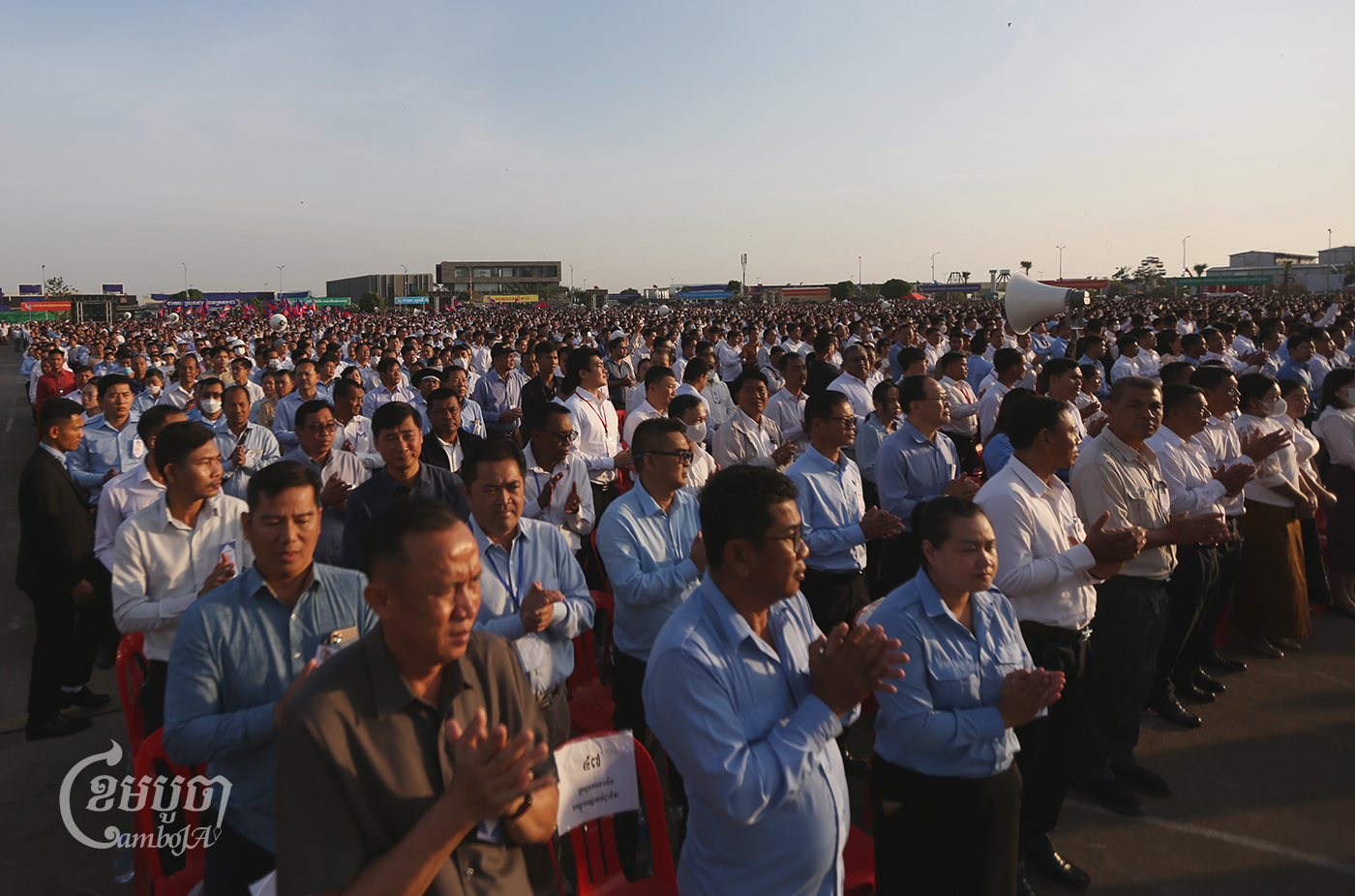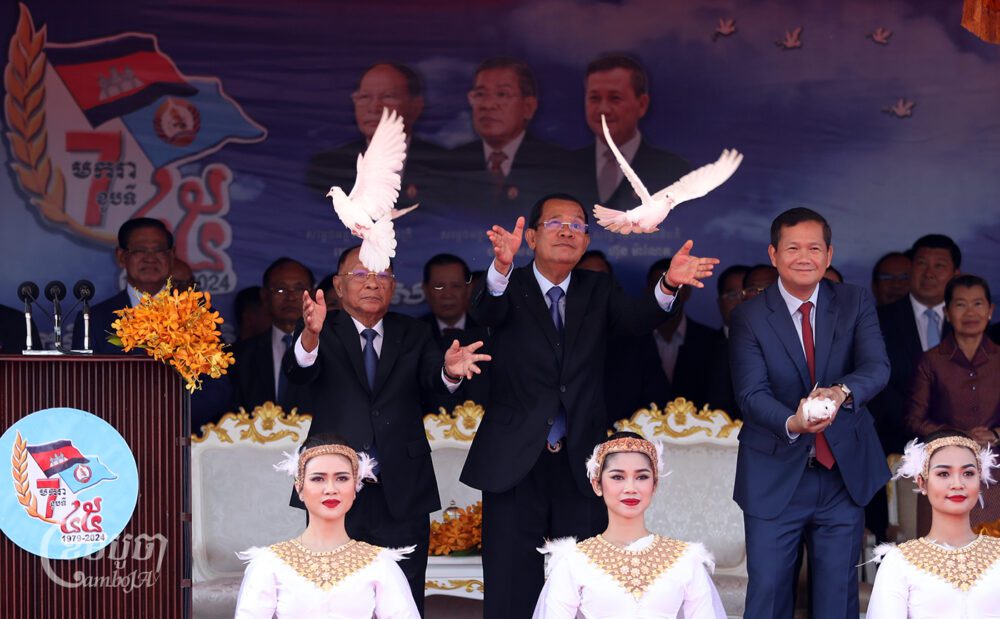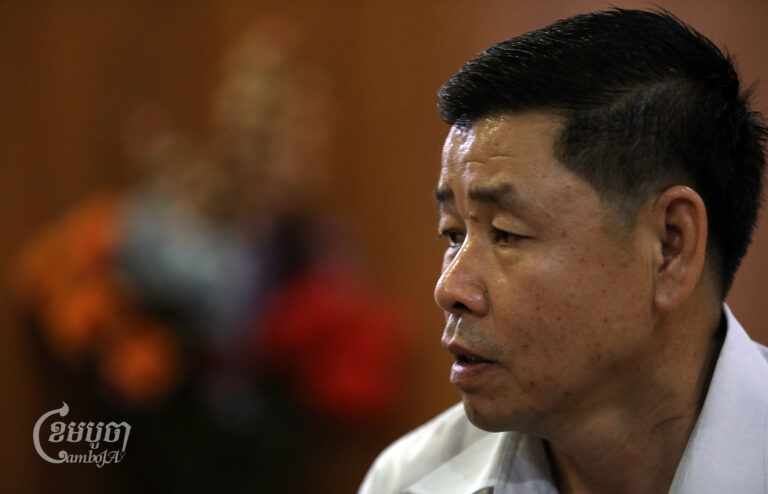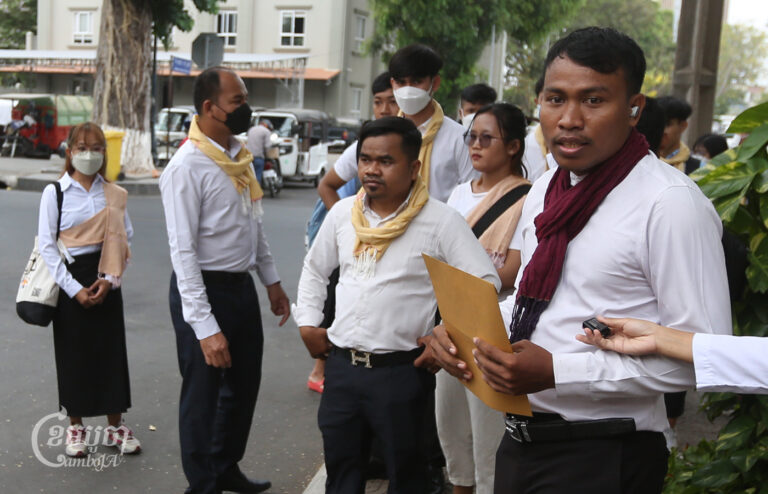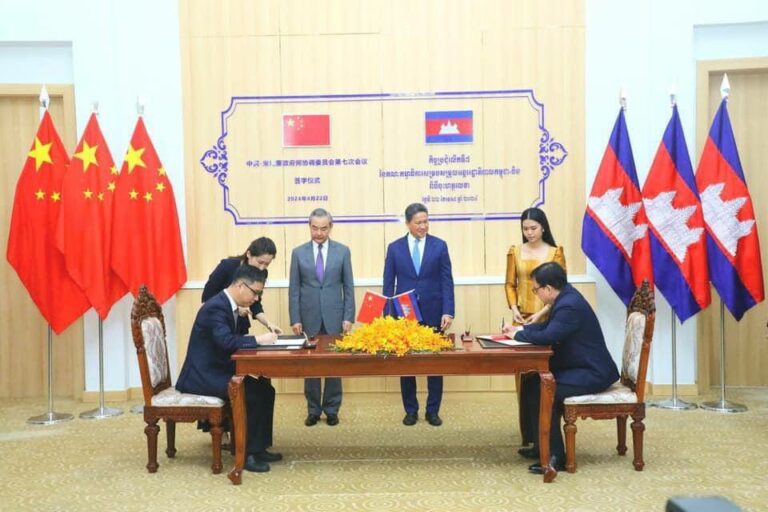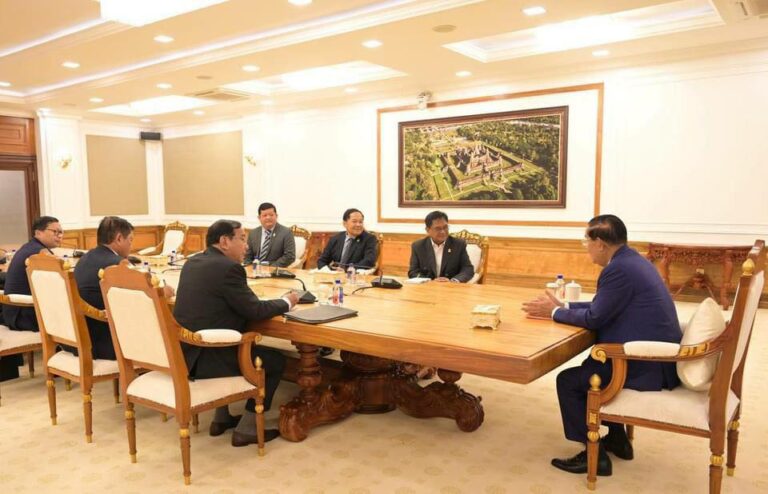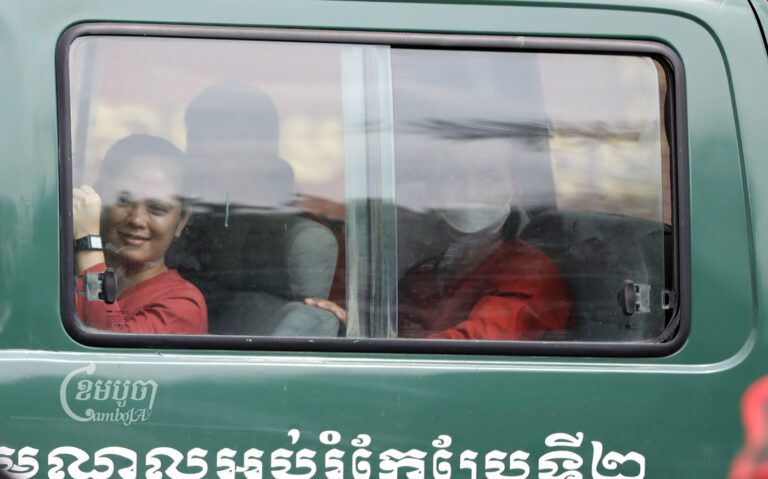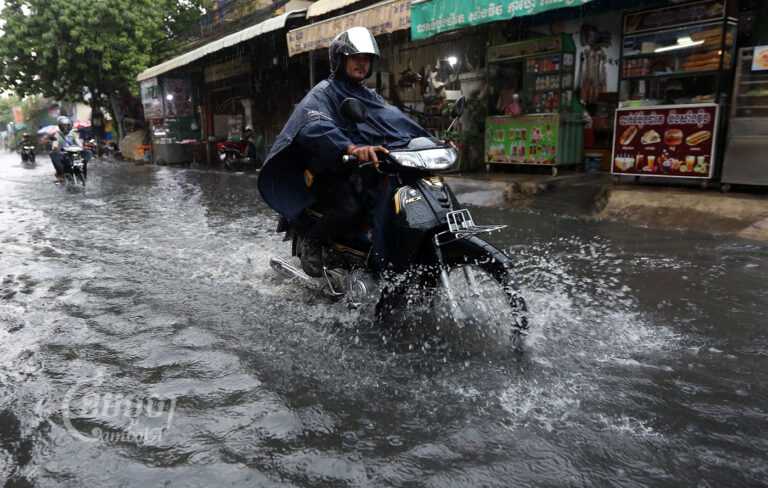Hun Sen, president of Cambodian People’s Party (CPP), said January 7 marks “Victory Day”, reminding citizens that liberal parties in Cambodia have constantly strengthened democracy, human rights and rule of law since the end of the genocide.
In the midst, differing opinions abound with regards to the CPP-led government’s implementation of full freedom of expression, with opposition parties calling for the restoration of democracy and human rights.
Some 20,000 CPP members attended the 45th anniversary of Victory Day on Sunday in Phnom Penh, marking the end of Khmer Rouge’s genocide.
“Liberal democracy, pluralism, human rights and the rule of law have been constantly strengthened and promoted,” Hun Sen said, pointing out that the seventh National Assembly election reflected the political maturity of Cambodia’s democracy.
In his speech, Hun Sen also spoke about eliminating “extremist politics”, in what seemed to be a reference to the court-dissolved opposition Cambodia National Rescue Party (CNRP) in 2017. The dissolution was followed by the arrest of its leader Kem Sokha and his 27-year jail sentence for treason, for allegedly organizing a “color revolution” to overthrow the government.
“We must be united in order to maintain peace which has been most difficult to achieve. No power can destroy it,” said the ex-prime minister.
On March 18, 1970 a coup by Lon Nol led a peaceful nation into the throes of war, where more than half a million people died. On April 17, 1975, Cambodia descended further into a genocidal catastrophe because of Pol Pot’s regime, according to the Office of the Council Minister.
After suffering at the hands of the Khmer Rouge regime, Cambodian people overthrew it on January 7, 1979. By then, nearly three million people had been killed.
Hun Sen said the party supported “Peace Day in Cambodia” as a national holiday on December 29 and mocked opposition groups, who “often criticized” Victory Day on January 7.
“I would like to send a message to these people. If you are not satisfied with the holidays on January 7 and December 29, please go to the remaining mine fields and experience the danger there,” he said. His remark was a suggestion to the opposition to recognize the dangers in the minefields and the efforts by the government to rescue the country from the civil war.
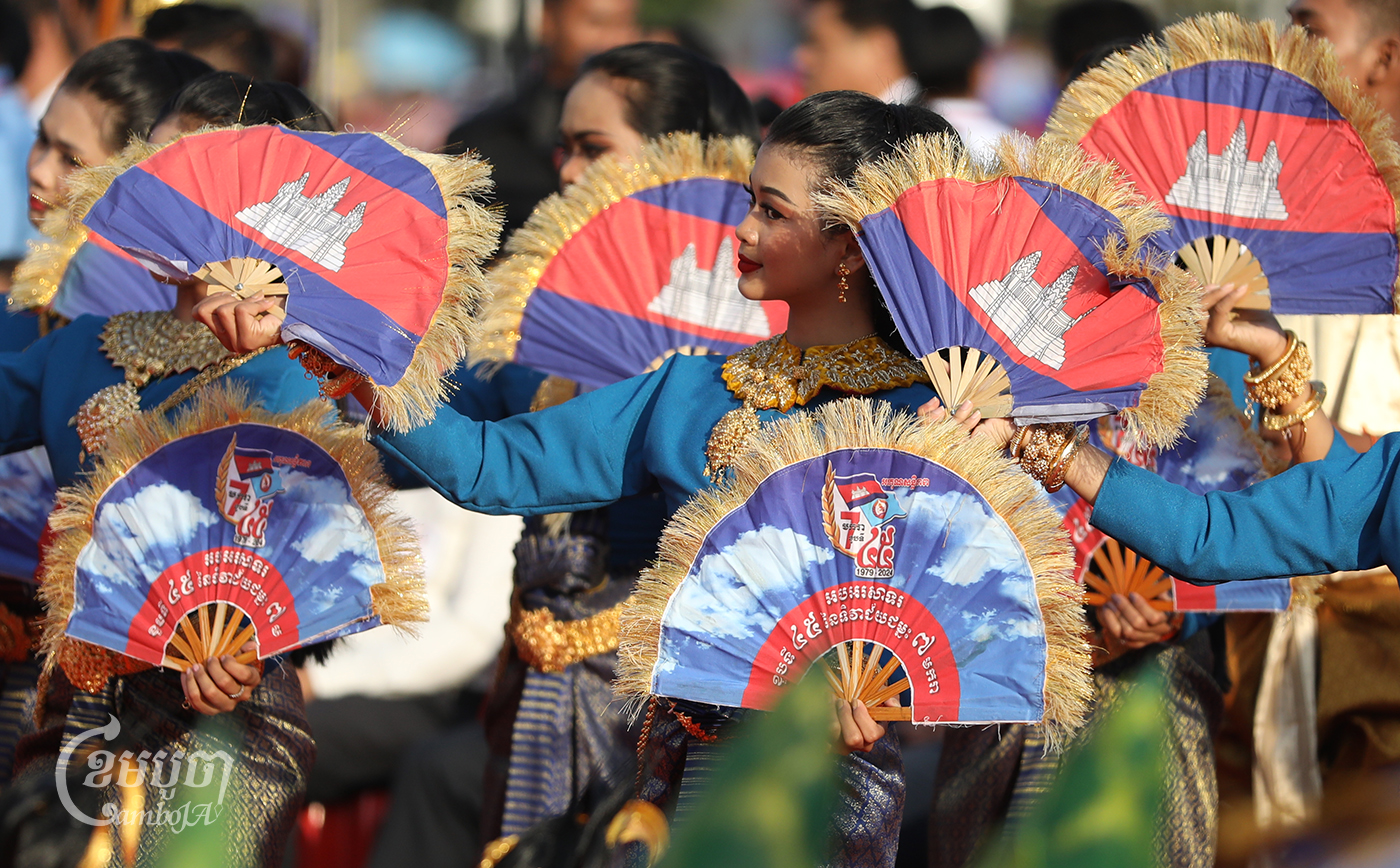
For the opposition party though, Victory Day elicits different views, which they saw as a day when Vietnam allegedly “intervened” in Cambodia.
“There are positive and negative points, so I don’t want to comment … but we have to consider … before they [Vietnamese] helped us as they had thought about the benefits,” said Kimsour Phearith, a former spokesperson for the Candlelight Party. He is presently a prospective candidate in the upcoming Senate election for Khmer Will Party.
“We have only seen the government speak out but there is no action,” he opined, adding that if leaders have a commitment to promoting democracy, then citizens are entitled to their freedom and rights. “However, freedom of expression is still restricted today.”
Ou Chanrath, vice president of Cambodia Reform Party, which is part of the Alliance Toward the Future, said despite having different perspectives related to the event on January 7, it was important to ensure real democracy and respect human rights.
“For many years, we have not seen this [being put to] practice [respect for human rights],” he said, citing examples of CNRP’s dissolution, persecution of members and activists, and Candlelight Party’s disqualification from national elections.
“From my observation, they have not met their commitment of strengthening democracy,” Chanrath said.
He also urged the government to reinstate October 23 as a national holiday to mark the Paris Peace Agreements.
The agreements were signed between 18 nations in Paris on October 23, 1991, and witnessed by the UN Secretary-General, paving the way for the establishment of the UN Transitional Authority in Cambodia. It also gave rise to the first national election in 1993 and the adoption of the Cambodian Constitution.
NGO rights group Licadho operation director Am Sam Ath shared similar views with political parties, noting that Cambodia has yet to honor the spirit of the Paris Agreements in relation to human rights and democracy. International communities have raised concerns, regularly calling for the restoration of democracy and fundamental rights.
As a principle, Cambodia has ratified many international conventions on human rights, so it has an obligation to comply with international standards.
Sam Ath said Cambodia should resolve the decline in human rights and democracy, which the European Commission (EC) highlighted a few years ago. “If Cambodia does not reform these gaps, benefits will be lost,” he said, noting that the EC suspended one-fifth of the tariff preference granted to Cambodia under the EBA scheme.
